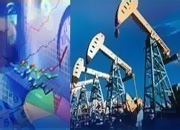Revenue of Rosneft rose by 35% in 2010 to USD 63.0 bln. The increase was due to higher prices for crude oil and petroleum products, and growth in volumes of oil production and refining. Revenue grew by 12% in Q4 2010 compared with Q3 to USD 17.4 bln, mainly due to higher prices for crude oil and petroleum products.
EBITDA in 2010 was US 19.2 bln, which is 42% more than in 2009. The increase was limited by various factors beyond the Company’s control, including rise of transportation tariffs, strengthening of the rouble in real terms and growth of tax payments. EBITDA in Q4 2010 was USD 5.4 bln, which is 16% more than in Q3 2010.
Net income in 2010 was USD 10.7 bln, which is 64% more than in the previous year. Net income in Q4 2010 was USD 3.1 bln, which is 19% above the level in Q3.
The Company continued to generate free cash flow in Q4 resulting in full year result for 2010 of USD 5.8 bln, which is the highest level in Company history. Rosneft also significantly improved its loan portfolio during 2010, reducing short term debt by USD 2.3 bln, as a result, its share in total debt decreased to just 23%.
Rosneft continued to achieve high rates of crude oil production growth in 2010. Average daily production, including production by subsidiaries and the Company’s share of production by affiliates, rose by 6.4% compared with 2009 to 2,322 th. bpd. The biggest contributors to growth were the Vankor and Verkhnechonsk fields in East Siberia, and also Samaraneftegaz. Average daily production in Q4 2010 was 2,352 th. bpd, which is 0.9% more than in Q3. The growth was due to increase of production in the Sakhalin-1 project after commissioning of the Odoptu field, as well as rising production at the Verkhnechonsk field and at fields operated by Yuganskneftegaz and Samaraneftegaz. Together with gas output of 12.3 bcm, Rosneft exceeded 2.5 million boe per day in 2010.
The Company produced 47.9 mln tonnes of petroleum products in 2010, which is 1.8% more than in the previous year. Petroleum product output in Q4 2010 was 12.25 mln tonnes, which is 1.4% less than in Q3 2010. The decline is explained by routine repair work at the Samara group of refineries.
Rosneft maintained tight control over costs. Unit lifting costs rose by 10% in comparison with 2009 to USD 2.83 per barrel despite real ruble appreciation of 12%. Unit refining costs rose to USD 2.0 per barrel, or by 6%. The Company remains a leader by unit SG&A costs, which were USD 2.0 per barrel in 2010.
Company achievements in cost optimization were offset by transportation tariffs growth at a multiple of inflation and increased tax payments. Transportation costs rose by 29% in 2010 to USD 7.0 bln and in Q4 2010 were USD 1.8 bln after three pipeline tariff increases during the year of 15.9% in January, 3.3% in August and 9.9% in December. Total accrued taxes and export duties rose by 36.4% in 2010 to USD 30.3 bln.
Commenting on the results, Rosneft President Eduard Khudainatov said: “We achieved very strong results in 2010, substantially outperforming our profitability and operating targets while also limiting controllable cost growth. As a result, we generated almost USD 6 billion of free cash flow for the company, reducing net debt by more than 25% while at the same time continuing to grow dividends by 20%. Looking ahead, we are focused on our strategic investment projects, including continuing Vankor’s development to deliver peak production in 2014 and our refinery upgrade program, as well as several new internal optimization projects and our recently announced strategic exploration partnerships”.
16 Февраля 2026 | понедельник | 16:45


